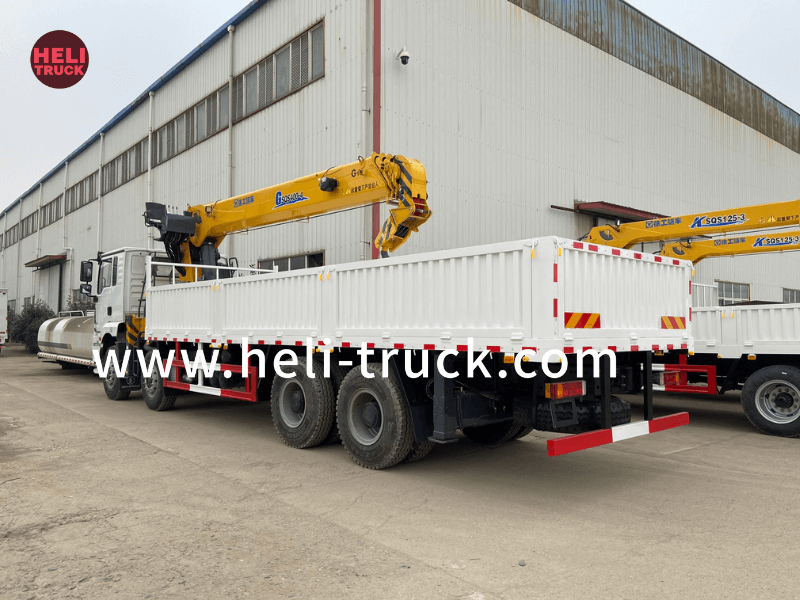Introduction
Waste management is a critical aspect of modern society, with garbage trucks playing a crucial role in collecting and disposing of waste materials. Garbage truck waste disposal standards are essential to ensure that waste is handled in an environmentally friendly and sustainable manner. This article will delve into the various aspects of garbage truck waste disposal standards, including the types of waste collected, disposal methods, regulations, and best practices.
Types of Waste Collected by Garbage Trucks
Garbage trucks are designed to collect various types of waste generated by residential, commercial, and industrial activities. The primary types of waste collected by garbage trucks include:
1. Municipal Solid Waste (MSW): This category includes household waste, such as food scraps, packaging materials, and paper products. MSW is the most common type of waste collected by garbage trucks and is typically disposed of in landfills or waste-to-energy facilities.
2. Recycling Materials: Garbage trucks also collect recyclable materials, such as paper, plastic, glass, and metal. These materials are sorted and processed for recycling to reduce the amount of waste sent to landfills.
3. Green Waste: Green waste includes organic materials like grass clippings, leaves, and tree branches. Garbage trucks equipped with specialized compartments collect green waste for composting or mulching.
4. Hazardous Waste: Some garbage trucks are designed to collect hazardous waste, such as chemicals, batteries, and electronic waste. Specialized disposal methods are required for handling hazardous waste to prevent environmental contamination.
Disposal Methods for Waste Collected by Garbage Trucks
Once waste is collected by garbage trucks, it must be disposed of properly to minimize environmental impact and public health risks. The following are common disposal methods used for waste collected by garbage trucks:
1. Landfill Disposal: The most traditional method of waste disposal involves transporting waste to landfills for burial. Landfills are engineered facilities designed to contain and manage waste, minimizing its impact on the environment.
2. Waste-to-Energy Facilities: Some garbage trucks deliver waste to waste-to-energy facilities where it is incinerated to generate electricity. This method helps reduce the volume of waste sent to landfills and produces energy from waste materials.
3. Recycling Centers: Garbage trucks deliver recyclable materials to recycling centers where they are sorted, processed, and recycled into new products. Recycling helps conserve natural resources and reduce the environmental impact of waste disposal.
4. Composting Facilities: Green waste collected by garbage trucks can be transported to composting facilities where it is turned into nutrient-rich compost for use in gardening and landscaping. Composting diverts organic waste from landfills and reduces greenhouse gas emissions.

Regulations and Standards for Garbage Truck Waste Disposal
Garbage truck waste disposal is subject to various regulations and standards to ensure that waste is managed safely and responsibly. These regulations are enforced by government agencies at the local, state, and federal levels and include the following key areas:
1. Collection Standards: Garbage trucks must adhere to specific collection standards, such as designated collection schedules, proper waste segregation, and containment of waste during transport. These standards help prevent littering and maintain public hygiene.
2. Disposal Regulations: Waste disposal regulations govern how waste is handled, transported, and disposed of to protect the environment and public health. Garbage trucks must comply with regulations on landfill operations, waste incineration, recycling practices, and hazardous waste management.
3. Environmental Protection: Garbage truck waste disposal standards focus on minimizing environmental impact through practices like waste diversion, recycling, and pollution prevention. Garbage trucks are required to follow guidelines for reducing greenhouse gas emissions, conserving natural resources, and protecting water and air quality.
4. Occupational Health and Safety: Garbage truck waste disposal involves potential risks to workers, such as exposure to hazardous materials, heavy lifting, and traffic accidents. Occupational health and safety standards mandate the use of personal protective equipment, training programs, and safe work practices to protect workers from harm.
Best Practices for Garbage Truck Waste Disposal
In addition to regulatory requirements, there are several best practices that garbage truck operators can adopt to enhance waste disposal efficiency and sustainability:
1. Route Optimization: Garbage truck routes should be optimized to minimize travel time, fuel consumption, and vehicle emissions. Advanced technology, such as GPS tracking and route planning software, can help optimize collection routes and reduce operational costs.
2. Waste Segregation: Proper waste segregation at the source is essential for efficient waste disposal. Garbage truck operators should educate residents and businesses on separating recyclable materials, green waste, and hazardous waste to facilitate recycling and composting.
3. Equipment Maintenance: Regular maintenance and inspection of garbage trucks are crucial to ensuring safe and reliable operation. Garbage truck operators should schedule routine maintenance, repair faulty equipment promptly, and train staff on vehicle safety procedures.
4. Community Engagement: Engaging with the community on waste management practices can promote awareness and participation in recycling and waste reduction efforts. Garbage truck operators can collaborate with local schools, businesses, and organizations to educate residents on sustainable waste disposal practices.
Conclusion
Garbage truck waste disposal standards play a vital role in managing waste responsibly and sustainably. By water tank truck to regulations, adopting best practices, and engaging with the community, garbage truck operators can contribute to a cleaner environment, healthier communities, and a more sustainable future. It is essential for stakeholders in the waste management industry to prioritize waste disposal standards and work together to address the challenges of waste management in the 21st century.
